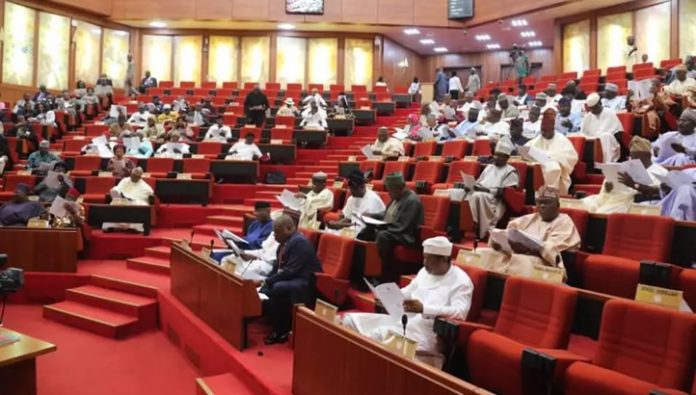Northern senators and the Miyetti Allah Cattle Breeders Association of Nigeria (MACBAN) have rejected a bill seeking the establishment of ranching as the only viable alternative for cattle breeding in Nigeria.
The National Animal Husbandry and Ranches Commission establishment Bill scaled second reading on the floor of the Senate yesterday after an intense debate.
Nigeria has struggled with herders-farmers conflicts for years, leading to losses of lives and property.
In his lead debate, the bill’s sponsor, Senator Titus Tartenger Zam (APC, Benue), said creating ranches in pastoralists’ states of origin would prevent conflicts and promote peaceful coexistence.
“The bill proposes that ranches be established in the pastoralists’ state of origin without forcing it upon other states or communities that do not have pastoralists as citizens.
“The bill proposes that interested parties in livestock business must seek and obtain approvals of their host communities to establish ranches for peaceful co-existence,” said the sponsor, Zam said.
He said banning open grazing through legislation would resolve the frequent clashes between farmers and herders.
He said the absence of a regulatory framework or legislation on pastoralism and livestock mobility had created a chaotic scenario of survival of the fittest between sedentary farmers and nomadic herders in Nigeria.
“Now is the time to bring a law to stop open grazing. It is old fashioned, hazardous, burdensome and must be discarded,” he said.
Before the bill scaled second reading, it had faced strong opposition from some northern senators, who insisted that herders should have the freedom to reside anywhere in Nigeria, as guaranteed by Section 41 of the 1999 Constitution.
Senator Adamu Aliero (PDP, Kebbi) maintained that confining herders to their states of origin violates their constitutional rights.
“This bill proposes that the pastoralists should be confined to their states of origin. This is against the constitution because they are Nigerians and should be allowed to move freely in Nigeria,” he said.
Aliero also said ranches should be established as private businesses that do not require the involvement of the federal government by establishing a commission.
He said the only reason he would support the bill was to expunge the provision restricting the ranches to the states of origin of herders.
Senator Mohammed Goje (APC, Gombe) described the bill as discriminatory, noting that cattle rearing is more prevalent in the North.
He emphasised that legislation should benefit the entire country, not just a specific region.
Senator Suleiman Abdulrahman Kawu (NNPP, Kano) also expressed concerns about the bill infringing on herders’ rights.
“The bill will even compound the problems of the herders and the farmers. You can’t propose a law to attend to a particular group or section of the country only. This bill is not holistic, and we will fight it till the end,” Kawu said.
Senator Hussein Babangida Uba (Jigawa North-West), called for caution in passing the bill, given its trail of controversies in the past.
Meanwhile, the All Farmers Association of Nigeria (AFAN) backed the proposed ranching law, believing it would enhance the development of the livestock subsector.
AFAN’s national president, Architect Kabiru Ibrahim, noted that the National Livestock Transformation Plan (NLTP) endorses ranching as the best method for animal husbandry.
He emphasized that ranching would lead to higher milk yield, efficient weight gain, and increased beef production.
Ibrahim said: “AFAN supports the bill and urges Mr. President to assent to it. Ranching will put an end to the farmer-herder clashes across the country. However, implementation should not be restricted solely to the state of origin.”
He further noted that the commission overseeing ranching should include knowledgeable stakeholders to ensure effective implementation, stressing that there is no need for premature disagreements before the bill is signed into law.








